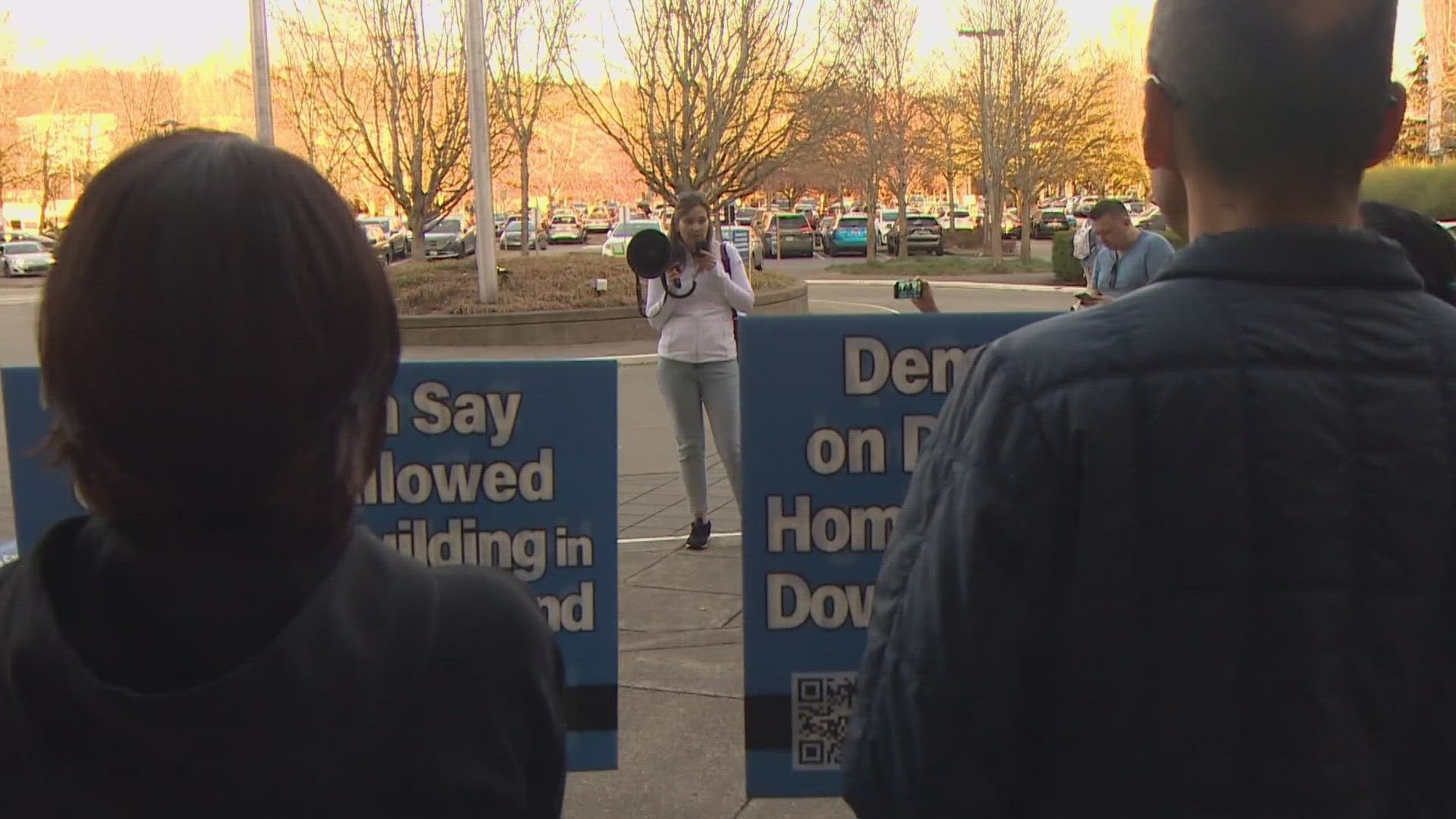REDMOND, Wash. — On Tuesday night, dozens of people came to Redmond City Hall to voice support or opposition for a proposed Permanent Supportive Housing project. Helmed by Plymouth Housing, the project was originally intended to be built in Kenmore; fierce opposition led to city leaders scrapping the plan.
In February, city leaders in Redmond voted to take the first step necessary to take on the project: transferring publicly-owned land to Plymouth Housing. The proposed site is at 16725 Cleveland Street.
According to the city's website, Redmond bought the property in 2019 to accommodate a light rail alignment project. The rest of the land was reserved for "deeply affordable housing" to be built next to the transit system.
A city spokesperson told KING 5, property transfers do not require public hearings.
Because the original plans were drawn up for Kenmore, Plymouth Housing must go back to the drawing board and create renderings that will fit the plot of land in Redmond.
At the February meeting, Elizabeth Murphy, real estate development manager at Plymouth Housing, said approving the land transfer would allow them to continue the design process, permitting and engaging with the community. With the 100 planned units, Murphy expects to support people who are low-income and just getting out of homelessness.
Along with the land, Redmond would be expected to give no more $3.2 million for the project. Ten million dollars had already been set aside for housing projects.
On its website, the city placed answers to frequently asked questions about the proposed project.
Anyone who would live in the housing would have to pass a background check and make no more than $28,800. Lifetime registered sex offenders and people with certain drug convictions would not be eligible for housing.
Plymouth Housing would also have to follow the extensive list of requirements for permanent supportive housing in the city of Redmond. Some highlights from those requirements include the following (the full list starts on page 45 of the linked document):
- No permanent housing can be used as a safe injection site;
- 24/7 staffing;
- A code of conduct that addresses threatening behavior, having weapons, alcohol and marijuana usage along with using and selling illegal drugs;
- Final program rules and code of conduct will be reviewed and approved by the Redmond Police Department and the director of planning and community development in consultation with Human Services staff.
Despite the exhaustive requirements, some people in the community are upset about the proposed project.
"We have serious concerns about who will live there and what is the plan,” Linda Yang, a community member, said. Yang and others felt blindsided by the property transfer. They would have preferred the city hold a public hearing on it despite not having a legal obligation to do so.
"Transparency, government transparency, democracy - allow people to be in the process and also the public safety,” she said.
"I'm excited to see something like this happen in the place that I grew up,” Amani Moyer-Ali, another community member, said.
After seeing what people posted online, Moyer-Ali said she felt compelled to come to the meeting and speak in support of the project.
"I think there's a lot of fear and there's a lot of misconceptions,” she said. “I would like to believe it’s not malice, it’s just a lack of understanding, but I would like people to try harder to see other people’s lives as valid and human.”
Moyer-Ali said she’s had a front-row view to how unaffordable Redmond has become; her dad is a realtor.
“If Redmond is inaccessible for someone like me, somebody who makes 30% of the area median income, it’s impossible for them,” she said.
At this point, there is not a firm project timeline.

